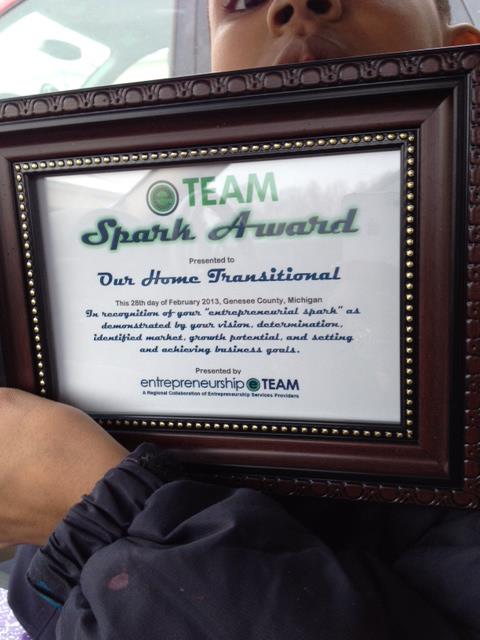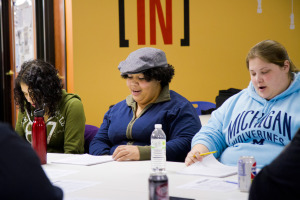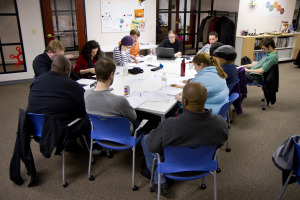by Mona Munroe-Younis
University Outreach is wrapping up the third year of the Boyer Faculty Scholars Program, which deepens the campus-wide conversation, practice, and recognition of scholarship of engagement at UM-Flint.
Since its beginning in 2012, the program has engaged 130 people (68 faculty, 25 staff, 22 community organization representatives, and 15 students) as participants in 10 professional development workshops related to scholarship of engagement and partnerships, as well as providing more intensive support to 13 faculty members through Boyer Scholar cohorts.
Members of the cohorts participate in a series of professional development sessions, develop signature community-engaged projects that show how scholarship of engagement can be done, and raise the visibility of scholarship of engagement through campus-wide and departmental presentations.
The signature projects of the most recent cohort of Boyer Faculty Scholars span across a range of disciplines and three of UM-Flint’s academic units, namely the College of Arts and Sciences, School of Education and Human Services, and the School of Health Professions and Studies.
Min-Hui Huang, Assistant Professor of Physical Therapy, developed a course in which her Physical Therapy students provided pro bono assessments of balance, mobility and fall risk to seniors living at Court Street Commons in Flint. As part of the partnership with Court Street Commons, the students’ assessments not only provided an opportunity for students to educate residents about how to improve their mobility and balance, but also formed the basis for referrals for clinical physical therapy services when needed.
Dan Lair, Assistant Professor of Communication, is leading a team of Communications faculty who will be teaching courses in the new Master in Applied Communication program in thinking about how to scaffold applied civic engagement projects throughout the graduate students’ academic program. As part of this work, Dan has forged a relationship with the City of Flint Planning Office, which will be partnering with the master program to engage students in year-long real communication projects that support the City in implementing its relatively new Imagine Flint Master Plan. The partnership is also exploring smaller-scale class project opportunities for the first year of the graduate students’ program.
Pamela Ross McClain, Assistant Professor of Education, adapted the capstone course she teaches for the Education Specialist graduate program to include a civic engagement component in order to support students in internalizing that civic engagement is part of the school leadership experience. The program prepares students to be executive leaders in the education field, such as school district superintendents. The capstone course requires each student to complete an action research project based on the challenges identified by Michigan school districts. Pam is also developing the C.A.R.E.2C.A.R.E. Model (Culturally Aware and Responsive Educators – Conducting Action Research in Education) to prepare future capstone students to work successfully in/with diverse communities.
Charlotte Tang, Assistant Professor of Computer Science, integrated service-learning into her 300-level Computer Science course and hired two Undergraduate Research Opportunity Program (UROP) students to complete an applied project for the Flint Institute of Arts (FIA). Working in teams, the students surveyed guests of the FIA to learn about their needs and interests as FIA users and developed a set of recommendations for how to make the FIA exhibits and overall experience more interactive.

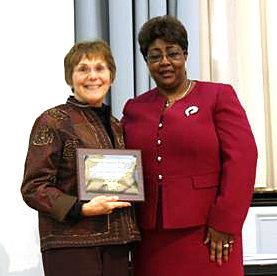
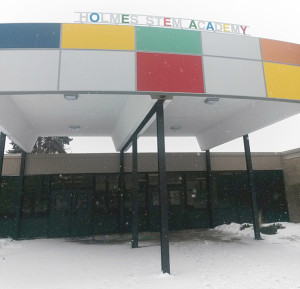
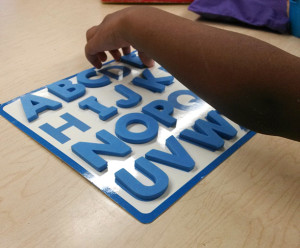
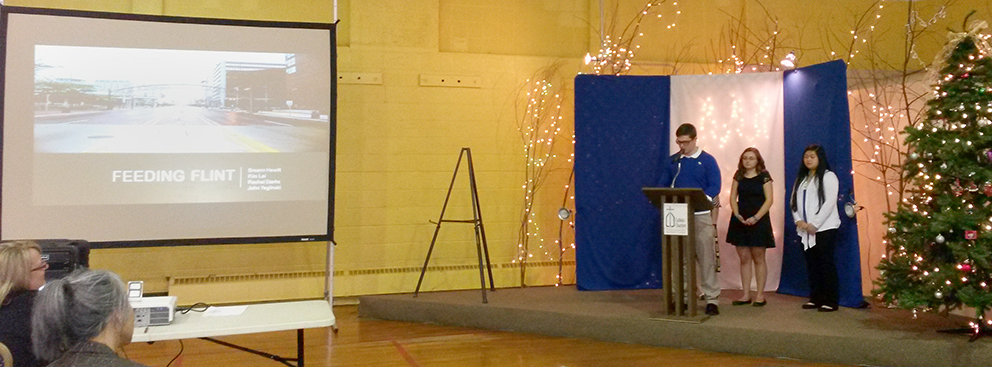
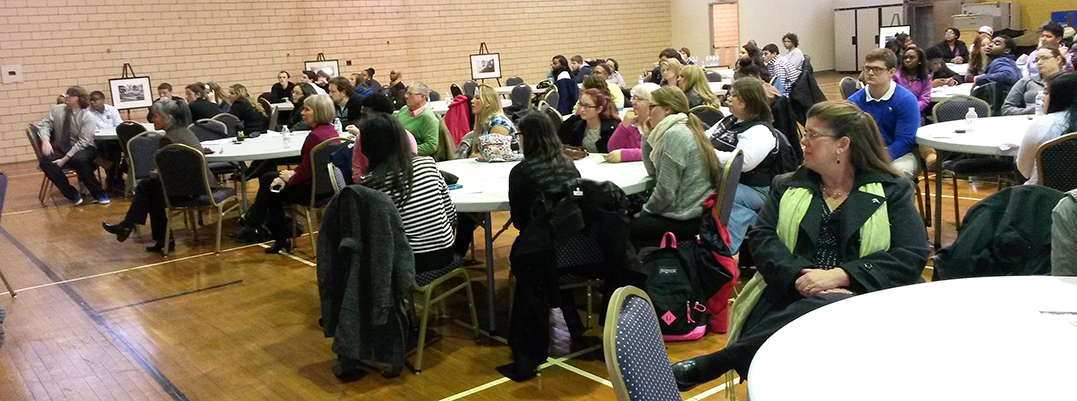
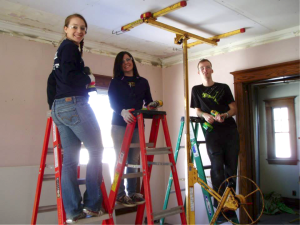
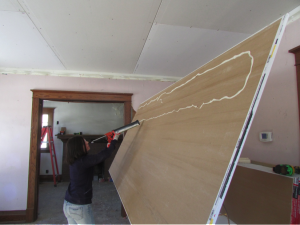 When the week of ASB arrived, I was pleasantly surprised. The transition home, one of several owned and operated through Carriage Town Ministries, was a beautifully remodeled Victorian home just a few block from campus. Our four day stay there was wonderful and humbling. Our group had the pleasure of staying with two other residents who were transitioning from homelessness to living on their own. They were friendly, hard-working (& clean) people who just needed a little extra support getting back on their feet.
When the week of ASB arrived, I was pleasantly surprised. The transition home, one of several owned and operated through Carriage Town Ministries, was a beautifully remodeled Victorian home just a few block from campus. Our four day stay there was wonderful and humbling. Our group had the pleasure of staying with two other residents who were transitioning from homelessness to living on their own. They were friendly, hard-working (& clean) people who just needed a little extra support getting back on their feet.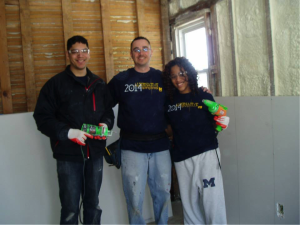
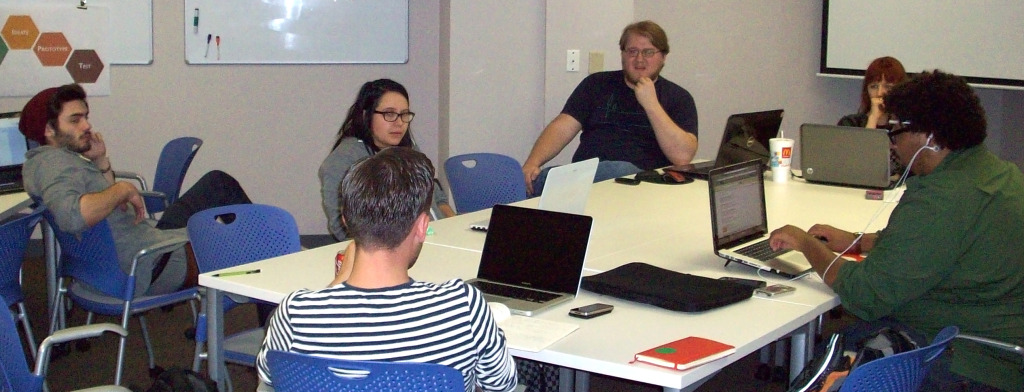 A group of seven students, led by Lecturer Andrew Morton, are completing a new play to be performed this Fall as part of the UM-Flint Theatre and Dance Department’s main stage season.
A group of seven students, led by Lecturer Andrew Morton, are completing a new play to be performed this Fall as part of the UM-Flint Theatre and Dance Department’s main stage season.